Russia’s invasion of Ukraine in February made democracy’s defense a priority of the highest geopolitical as well as normative order, says a new report.
It propelled commitments to protect democracy to the top of the agenda for Europe, internally as well as in foreign and security policy, say Carnegie analysts Richard Youngs and Elena Ventura. European powers responded and a common line gained currency that the war had pulled them through a watershed conversion in their strategic outlook., they write in the introduction to the European Democracy Hub’s annual review of European democracy support.
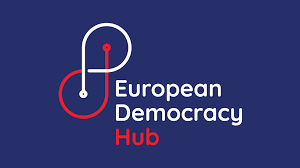 The war provided a fillip but also a complication for democracy strategies, notes Erin Jones, a research analyst in Carnegie Europe’s Democracy, Conflict, and Governance Program.
The war provided a fillip but also a complication for democracy strategies, notes Erin Jones, a research analyst in Carnegie Europe’s Democracy, Conflict, and Governance Program.
The invasion was framed as a direct threat to Ukraine’s fledgling democracy and as an attack on the idea of democracy itself, she observes. As such, it became a symbol of the global ideological struggle and galvanized democracies in general, and Europe in particular, to band together. Yet it also added strains to democracy across Eastern Europe, inside the EU, and globally.
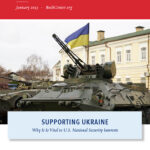 Contrary to claims that the West’s democracies are getting too deeply involved in the war in Ukraine, the best way to commemorate February 24, the anniversary of Putin’s invasion, is to make clear that helping Ukraine win as fast as possible is the West’s strategy, argues Stanford University’s Michael McFaul.
Contrary to claims that the West’s democracies are getting too deeply involved in the war in Ukraine, the best way to commemorate February 24, the anniversary of Putin’s invasion, is to make clear that helping Ukraine win as fast as possible is the West’s strategy, argues Stanford University’s Michael McFaul.
Harsher sanctions work to cut off Russia from the world, but the West should simultaneously do more to reach the hearts and minds within Russia, he writes for Foreign Affairs:
The U.S.-government-funded Radio Free Europe/Radio Liberty nearly tripled its audience, most of it in Russia and Ukraine, after the war began. Russian independent media now operating outside of Russia also expanded their audiences. Viewership of YouTube channels operated by colleagues of jailed opposition leader Alexei Navalny also jumped dramatically in 2022. The two channels Navalny originally created have at least 9.5 million subscribers.
 But every one of these outlets would benefit from more resources, new methods of financing, easier access to work visas, and technologies to help them penetrate Putin’s informational Iron Curtain, adds McFaul, the author of From Cold War to Hot Peace: A U.S. Ambassador in Putin’s Russia.
But every one of these outlets would benefit from more resources, new methods of financing, easier access to work visas, and technologies to help them penetrate Putin’s informational Iron Curtain, adds McFaul, the author of From Cold War to Hot Peace: A U.S. Ambassador in Putin’s Russia.
The United States and other NATO allies have generally done a very good job in supporting Ukraine militarily and through an unprecedented set of sanctions against Putin and Russia, which must continue, say foreign policy experts David Kramer and Eric Edelman. But the military support always seems to be a step behind where Ukraine needs it to be, from delays in sending HIMARS and armored vehicles to Patriot air defense systems and now tanks.
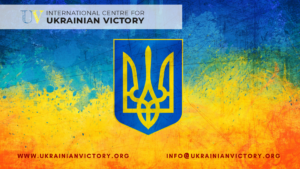 Ukraine eventually gets much of what it asks for, but it takes too long and comes after more Ukrainians unnecessarily lose their lives. The West needs to move with greater alacrity and recognize that time is of the essence, they write for The Bulwark.
Ukraine eventually gets much of what it asks for, but it takes too long and comes after more Ukrainians unnecessarily lose their lives. The West needs to move with greater alacrity and recognize that time is of the essence, they write for The Bulwark.
So far, Ukrainians trust Zelenskiy to lead the fight against Russia, but they also support outside conditionality and oversight over aid and reconstruction funds, adds Orysia Lutsevych, the head of Ukraine Forum at Chatham House. A poll conducted in November showed that 55% of Ukrainians felt that rebuilding projects should be monitored by the outside funders.
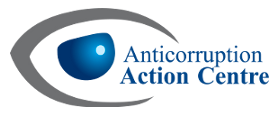 A system to protect whistleblowers should be set up to help expose and prevent corrupt schemes, she writes for The Guardian. Officials accustomed to the old ways must be replaced with new civil servants who will be impersonal and strict in following the rules, and are genuinely committed to the public good.
A system to protect whistleblowers should be set up to help expose and prevent corrupt schemes, she writes for The Guardian. Officials accustomed to the old ways must be replaced with new civil servants who will be impersonal and strict in following the rules, and are genuinely committed to the public good.
In recent days, the Kremlin has struck more blows against independent civil society and media, the U.S. State Department observes. On January 25, a Moscow court ruled to close the Moscow Helsinki Group, Russia’s oldest human rights organization. The Kremlin’s crackdown on independent civil society and media at home creates a climate of impunity that enables its aggression against its neighbors.
Russian authorities should withdraw their decision to label the country’s most-read independent news website, Meduza, an “undesirable” organization, said the International Press Institute.

Meduza
The designation carries even more serious consequences than the status of “foreign agent”, which Meduza received in 2021, IPI adds. It now means that collaborating with Meduza could entail criminal liability, including up to 10 years in prison, while sharing or liking work by Meduza on social media could be considered an administrative or criminal offence.
Ukraine’s global community of friends needs to engage in dialogue with not only government representatives but also civil society and trade unions on the challenges of building well-funded, democratic institutions, Luke Cooper, the author of Authoritarian Contagion: The Global Threat to Democracy, writes for American Prospect.
The George Washington University (GWU) Elliott School of International Affairs host a discussion on “Putin’s War or Russia’s War?” Speakers: Leonid Volkov, chief of staff for Alexei Navalny; and Sam Greene, director for democratic resilience at the Center for European Policy Analysis.
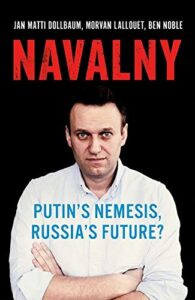 4 p.m. February 1, 2023. Venue: GWU Elliott School, 1957 E Street NW, Room 602, Washington, D.C. RSVP Jason Shevrin, 202-994-5631, jshevrin@gwu.edu or gwmedia@gwu.edu
4 p.m. February 1, 2023. Venue: GWU Elliott School, 1957 E Street NW, Room 602, Washington, D.C. RSVP Jason Shevrin, 202-994-5631, jshevrin@gwu.edu or gwmedia@gwu.edu
It’s been two years since Navalny’s arrest, and the documentary chronicling the events leading up to his imprisonment is now nominated for an Oscar, The Post adds. On Tuesday, Jan. 31 at 11:00 a.m. ET, “Navalny” producers, Maria Pevchikh and Odessa Rae, join The Post’s Greg Miller to discuss the Kremlin critic’s conditions in prison, the documentary’s impact and what the future of Russia holds.
Register for the program here.
#Ukraine became a symbol of the global ideological struggle and galvanized democracies in general, and Europe in particular, to band together. Yet it also added strains to democracy, says a new @Carnegie_Europe report. https://t.co/p4aMPEXa6Y via @YoungsRichard
— Democracy Digest (@demdigest) January 30, 2023







